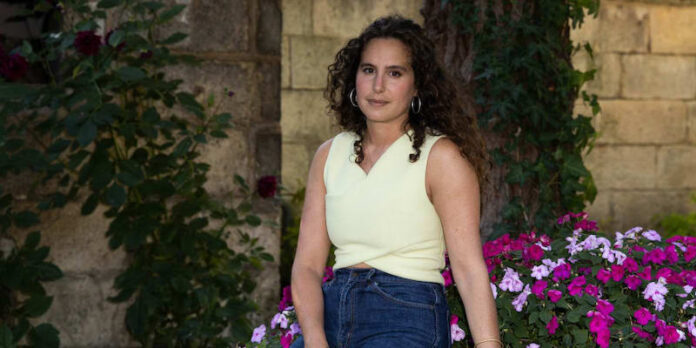French director Lina Soualem pose during a photocall for the film ‘Leur Algerie’. — AFP pic
PARIS, Oct 24 — When writer Kaoutar Harchi was a little girl growing up in Strasbourg two decades ago, her teacher gave her a book with the inscription, “To my little Arab”.
“It profoundly shocked me and I’ve never forgotten it,” said Harchi, now 34 and a successful novelist and sociologist in Paris.
“It was a way of assigning me to my origins, to say that I was not French.”
A reckoning is belatedly underway in France over its colonial past.
It is led by young female writers, filmmakers, and researchers like Harchi who are challenging the old myth that the millions who were brought for work after World War 2 — primarily from Algeria and Morocco — were perfectly integrated under the welcoming umbrella of French citizenship.
“France in the 1950s and 1960s was a place where, if you were Algerian and you were taking the metro, you would stick close to the wall because you were afraid someone would push you,” said Salima Tenfiche, a researcher at Paris University.
This past weekend marked the 60th anniversary of the Paris Massacre, when dozens, perhaps hundreds, of Algerian independence protesters were killed by police, many of them drowned in the Seine — an incident wiped from the national memory for decades.
The first generation of immigrants responded by building a wall of silence.
“All these stories, this racism, these humiliations — they couldn’t talk about it with their children. There was a lot of shame and suffering. Many never found their place in society,” said Tenfiche.
Language of exile
Now a slew of novelists and artists is helping to pull down that wall.
Lilia Hassaine’s Soleil Amer (Sun Soul), Alice Zeniter’s The Art of Losing, Faiza Guene’s La Discretion — all are inspired by the arrival of their Algerian families in the 1960s by writers in their thirties.
Or there’s Leila Slimani’s bestselling The Country of Others, which recounts how her Moroccan grandfather met her French grandmother.
“For the first generation, they had to remain discreet to survive. For the second, who had witnessed the sacrifices of their parents, the question of memory was secondary. It’s the third generation, with enough distance from this painful history, who are able to tackle these questions,” said Tenfiche.
Lina Soualem, 31, has just released a documentary, Leur Algerie (Their Algeria) that digs into the experience of her grandparents coming to France in the 1950s.
“We never spoke about these things because the norm was silence. A silence that was transmitted from generation to generation as if the language of exile was ultimately silence,” she told AFP.
Her grandfather, largely mute through the film, finally opens up when Soualem returns to Algeria and finds her family’s graves — something none of her relatives had done since coming to France.
He had worked in a knife factory in Clermont-Ferrand.
The town is world-famous for its knives, but she could find no pictures of him in the town’s museum because none were ever taken of the Algerian workers.
“It’s not about forgiveness or reconciliation. It’s about memory — the fact that we can finally talk about these people who have always been forgotten in the French national narrative,” said Soualem.
It’s the same for Hassaine, whose Soleil Amer was nominated for France’s top Goncourt literary prize.
“The subject isn’t so much Algeria — it’s departure, unrooting,” said Hassaine, 30.
“I wanted to speak about France and the way that first generation of immigrants was treated — the racism. But I didn’t want to do it in an angry way. I just wanted to tell the story as it was, because it was also a beautiful story.” — AFP


